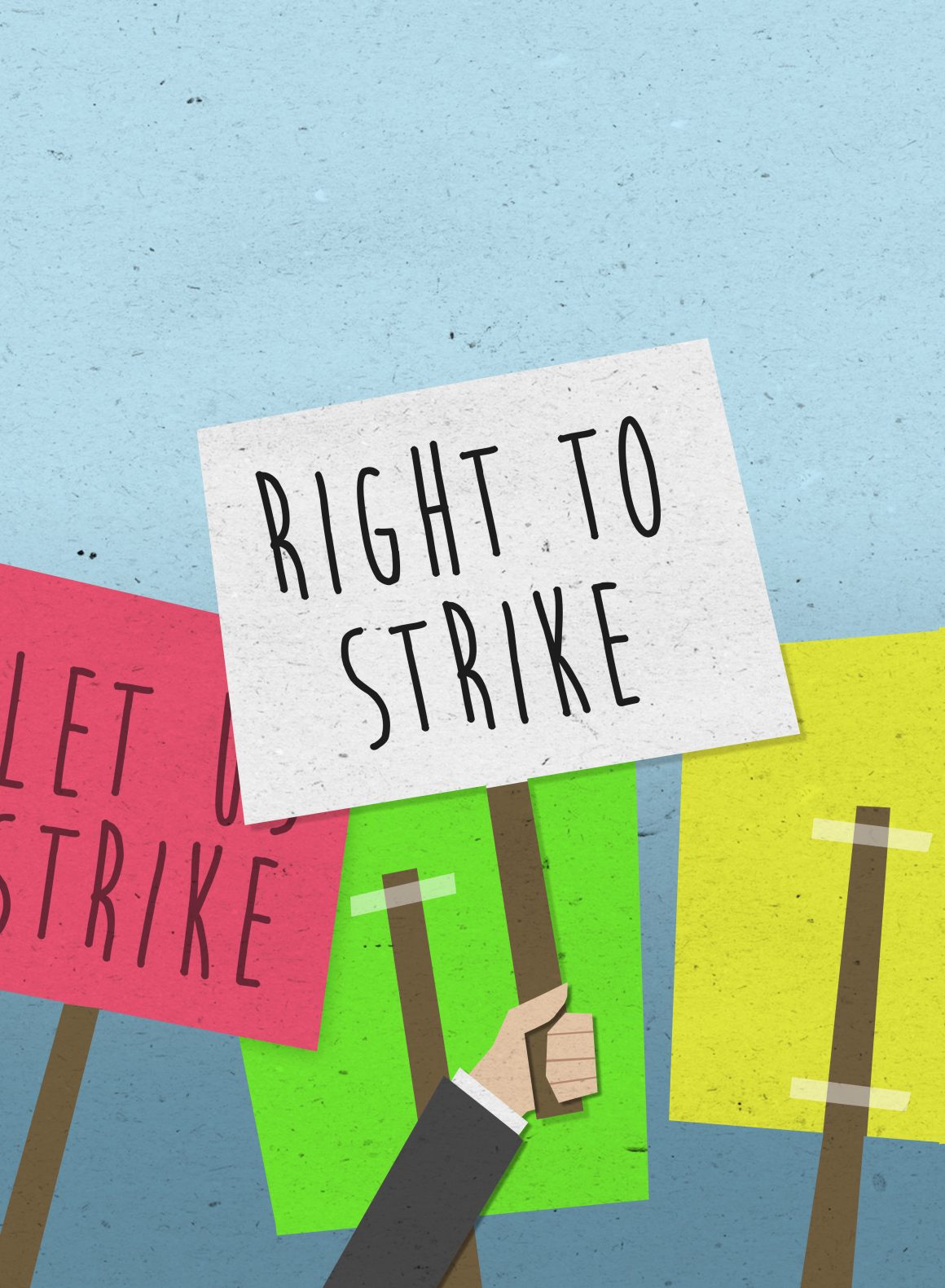
Right to strike vital for faculty association labour policy
By Kate Jacobson, October 25 2016 —
In early 2015, the Supreme Court of Canada ruled that the right to strike is protected by the Canadian Charter of Rights and Freedoms guarantee of freedom of association. All groups, no matter who they work for, have the right to withhold their labour by going on strike.
In order to comply with the Supreme Court ruling, the provincial government is considering moving the governance of faculty associations from the Post Secondary Learning Act to the Labour Act.
There would be challenges if the faculty association moved under the Labour Act. A formal unionization process could potentially exclude certain faculty members and remove the protection of their collective agreements. Critics who suggest the provincial government should instead consider amending the PSLA to include the right to strike are not wrong. Amending policies minutiae is not an unimaginable hurdle and the right to strike is important enough to warrant the effort.
We tend to think that strikes and labour unions are for blue collar workers. Workers’ rights make us think of pipefitters and coal miners. Yes, university faculty tend to enjoy comfortable and well-paying jobs. But the right to bargain for your labour — and if necessary, go on strike — isn’t just for underpaid workers in dangerous industries. If you have the right to work, you should have the right to not work.
Besides, the ability to strike and the likelihood of a strike occurring are two vastly different things. If the faculty association at the U of C currently enjoys a harmonious relationship with university administration, it seems unlikely that the added ability to strike will sour that relationship. Likewise, if the faculty association had serious grievances with the university, the right to strike didn’t create those problems — it merely gives faculty another option to address them.
The right to strike is a human right by both Canadian and international law. It is an obvious condition of a free society that accepts conflict and disagreement as healthy and normal. That right doesn’t cease to exist when people start working in offices.
Imbalances between employers and their workers will always exist. University administration has the ability to change salaries, work expectations and working conditions. University faculty does not. And there are already protections like contracts and bargaining agreements in place to help prevent the university from taking advantage of its faculty.
Having the ability to strike is not so different from the ability to negotiate for cost-of-living wage increases and protections for academic freedom, which the faculty association already does. It is merely a tool that can be used by workers to protect their interests, just as employers have the ability to protect theirs.
Opponents of strikes argue that they are inconvenient and frustrating. This is true. This is also why they are typically a last resort and a form of protest that, while stressful and difficult for both workers and employers, is far better than the alternative — a world where employers can change wages and working conditions, knowing that workers have no option but to accept them.
The right to strike is our protection against this reality. Regardless of whether faculty associations move under the Labour Act or amendments are made to the PSLA, a right to strike should be extended to faculty associations.
